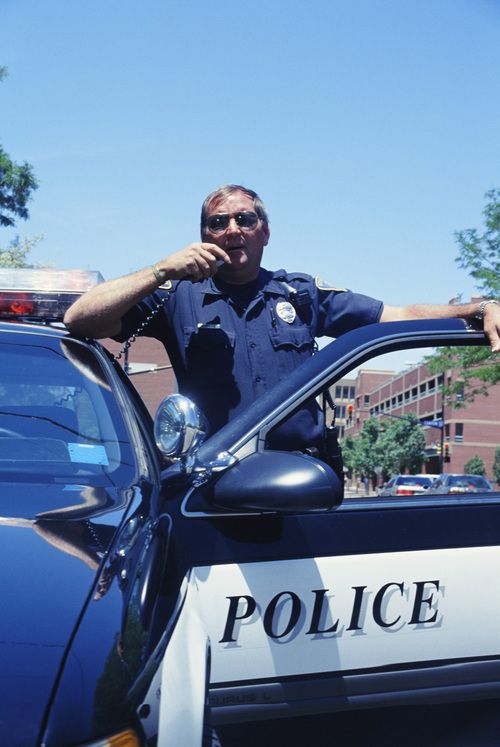 Although we all know that the law enforcement officers patrolling the roadways are supposed to be there to keep us safe and help us in times of need, most of us would prefer not to come across them nonetheless. No one leaves the house in the morning hoping to be pulled over for a traffic stop during the course of the day! The good news is that you can reduce your odds of being stopped. An Omaha I-80 drug stop attorney explains 10 things you can do to avoid ending up the subject of a traffic stop.
Although we all know that the law enforcement officers patrolling the roadways are supposed to be there to keep us safe and help us in times of need, most of us would prefer not to come across them nonetheless. No one leaves the house in the morning hoping to be pulled over for a traffic stop during the course of the day! The good news is that you can reduce your odds of being stopped. An Omaha I-80 drug stop attorney explains 10 things you can do to avoid ending up the subject of a traffic stop.
Many people go out of their way to avoid police vehicles while driving, often spending large sums of money on radar detection devices or downloading apps that purport to tell you where roadblocks and speed traps are located. Hoping to avoid a traffic stop doesn’t mean you are a criminal, or even that you are violating any traffic laws. Even the most law-abiding citizens would prefer not end up in a traffic stop, particularly if the stop results in an expensive ticket. Worse still, if the officer believes you are driving under the influence or transporting drugs, you can plan on spending an hour or more along the side of the road – and that’s if the investigation does not end up in your arrest.
10 Things You Can Do to Avoid a Traffic Stop
Although there is no sure-fire method of avoiding a traffic stop, there are some things you can do that will greatly reduce your odds of being stopped. Many of these things are triggers for a “pretextual” stop. A pretextual stop is one in which a police officer uses a minor traffic violation to conduct a traffic stop. That pretext then allows the officer to look for probable cause to investigate a more serious crime, such as driving under the influence or transporting contraband. To reduce your odds of being stopped:
- Inspect your vehicle regularly. A favorite “pretext” is a license plate light not functioning (did you even know there is a light there?) or a taillight out.
- Keep your registration up to date. If your plates and/or registration are expired, you can count on getting stopped.
- Make sure mirrors are functioning and don’t block the rear windshield. A driver’s ability to use all mirrors and to see out the rear windshield is a safety issue – and a reason for a law enforcement officer to stop you.
- Do not weave in and out of traffic. While a violation of any traffic law is cause to stop a motorist, some draw an officer’s attention more than others. Weaving in and out of traffic can be indicative of a driver who is under the influence. Therefore, it is likely to get you pulled over.
- Keep your speed within 10 m.p.h. of the posted speed limit. Note that the rule is not to drive exactly what the posted speed limit is – that can be suspicious actually. Driving too fast or too slow, however, is also suspicious. When in doubt, go with the flow of traffic.
- Use your turn signals when changing lanes. We all forget to use them, particularly when changing lanes; however, police officers love to use that failure as the cause for a traffic stop.
- Avoid driving between 12:00 a.m. and 6:00 a.m. when possible. Sometimes it cannot be avoided; however, if you do not have to drive during the middle of the night, don’t. There are fewer vehicles on the roadway, increasing your visibility. In addition. police officers frequently assume a motorist has been out bar hopping or doing something else questionable during those hours.
- Avoid driving on known drug trafficking routes when possible. Again, you may not be able to avoid it, but when you can take an alternate route, stay off of known drug trafficking routes, such as I-80 through Nebraska.
- Keep the noise level down. Yet another trigger is a violation of local noise ordinances. Your music or muffler could be the culprit. Moreover, whether you are violating a noise ordinance is a very subjective question
- Check your window tint. Individual states decide how dark the tint can be on a vehicle’s windows – and the laws vary widely. Some states even specify one level of tint for the back windows and another or the front windows. If you purchased a vehicle that was once registered in another state, or that had tint installed after leaving the dealership, it could be too dark. Even if it isn’t too dark, if it is close it provides a pretext to pull you over and conduct a traffic stop.
Contact an Omaha I-80 Drug Stop Attorney at Petersen Law Office
If you have been charged with a criminal offense in the State of Nebraska, consult with an experienced Omaha criminal attorney as soon as possible to ensure that your rights are protected. In Nebraska contact Petersen Criminal Defense Law 24 hours a day at 402-509-8070 to discuss your case.


